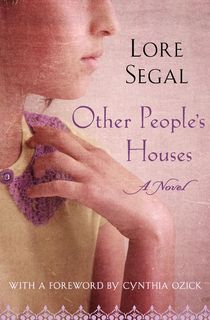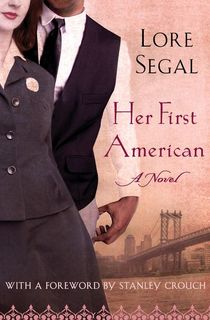On October 7th, 2024, Austrian-American writer Lore Segal passed away in her Manhattan home at the age of 96. Segal is remembered as a witty and poignant documenter of the post–World War II immigrant experience. Her work tackles solemn topics like displacement and otherness with levity, precision, and grace.
Segal escaped Nazi-occupied Vienna at the age of ten on the British Kindertransport, which transferred endangered Jewish children to foster families in England. Her experience moving from household to household would serve as the basis for her autobiographical first novel, Other People’s Houses, published in 1964 to wide critical acclaim and commended by such powerful post-war voices as Holocaust survivor Elie Wiesel.
In 1985, Segal once again demonstrated her talent for approaching marginal identities with empathy and nuance in Her First American. “Lore Segal may have come closer than anyone to writing The Great American Novel,” The New York Times wrote of the semi-autobiographical novel based on Segal’s five-year relationship with the Black sociologist Horace R. Clayton.
In addition to her novels, Segal published several children’s stories and translated works such as the Bible and Grimm’s Fairytales into contemporary English. Her short story collection Shakespeare’s Kitchen was a 2008 Pulitzer Prize finalist in fiction.

Other People's Houses
On a December night in 1938, a ten-year-old girl named Lore is put on the Kindertransport, a train carrying hundreds of Jewish children out of Austria to safety from Hitler’s increasingly alarming oppression. Temporarily housed at the Dover Court Camp on England’s east coast, Lore will find herself living in other people’s houses for the next seven years: the Orthodox Levines, the Hoopers, the working-class Grimsleys, and the wealthy Miss Douglas and Mrs. Dillon.
Charged with the task of asking “the English people” to get her parents out of Austria, Lore discovers in herself an impassioned writer. In letters to potential sponsors, she details the horrors happening back at home; in those to her parents, she notes the mannerisms and reactions of the new families around her as she valiantly tries to master their language. And the closer the world comes to a new war, the more resolute Lore becomes to survive.
As powerful now as when it was first released fifty years ago, Other People’s Houses is a poignant tale about the creation of a new life in the face of hopelessness and fear—a hallmark of the postwar immigration experience.

Her First American
For Ilka Weissnix, everything is new. Having recently arrived in the United States, she is determined to escape the immigrant communities of New York and boards a train headed west to discover “the real America.” She finds Carter Bayoux “sitting on a stool in a bar in the desert, across from the railroad.”
Older, portly, experienced, and black, Carter is magnetic. To Ilka, he exemplifies the values and cultures of a changing America. In order to understand her new country and her new love, Ilka throws herself into Carter’s dizzying world, nurses him through his bouts of depression and his alcoholism, and becomes fascinated by stories of his amorous past. But Carter’s ghosts are ever present, and soon Ilka finds herself torn between saving him and saving her own future.
With a foreword by Stanley Crouch, Her First American is the poignant story of an immigrant experience in a country of endless possibilities and of a rich and breathtaking love that is doomed from the start.
